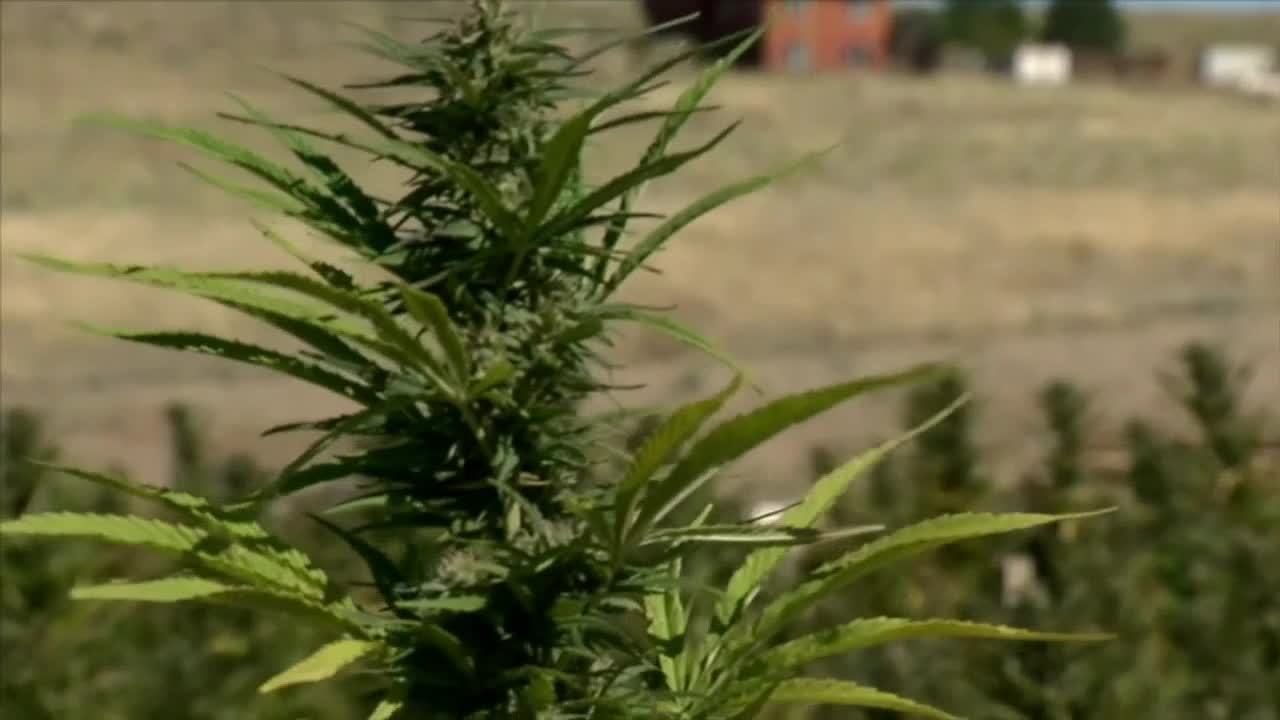DENVER — The longest government shutdown in US history is over, but it's impacts continue, especially for the hemp industry across the country.
On Wednesday, President Donald Trump reopened the government after signing a spending bill passed by the House.
That spending bill included language redefining what hemp is at the federal level, banning hemp products with more than .4 milligrams of THC per container.
“The majority of products in that marketplace today are products that would be outlawed by these new federal restrictions”, said Paul Armentano the Deputy Director of the National Organization for the Reform of Marijuana Laws (NORML).
Armentano says the federal government is "using a sledgehammer when they ought to be using a scalpel".
“The federal government is basically saying, in one fell swoop, they're seeking to target and essentially close down a significant, if not a majority of those individuals that are currently involved in the commercial production and sale of hemp derived mood altering products,” he added.
Adjunct professor of cannabis with MSU Denver’s School of Hospitality, Shannon Donnelly, says these regulations are not a realistic measure for the country’s $28 billion hemp industry.
"95% of the products contain more than that", she said.
Donnelly predicts immense impacts will be felt in Colorado.
“Our consumers who were used to getting hemp derived products directly to their door are no longer going to be able to do that, so they may actually now have to go into dispensaries to get their product again,” she said.
“Dispensaries don't have the variety of products that the hemp market did,” she added.
Other impacts she noted included items being pulled from shelves, like hemp beverages, a weaker hemp industry in Colorado, and also the devastating impacts to small businesses.
“We had businesses who bet on hemp,” she said.
“They left the regulated marijuana industry just the last year to say, ‘Hey, I'm going to go big into the hemp market’, and that might have been a bad choice for them.”
She emphasized small businesses had the ability to enter the hemp industry with less barriers than the regulated marijuana industry, but that won’t be the case anymore.
“We're losing these individuals who have put their life savings and their heart and soul into building these hemp businesses may no longer be viable next year,” she said.
“With this, it would completely wipe out that industry, and it no longer would exist. We'd lose jobs, we're going to lose revenue, and it's really going to impact some of the medical users of these products as well” she added.
Though, not everyone thinks these new limitations are bad news.
Luke Niforatos, the Executive Vice President of Smart Approaches to Marijuana (SAM), a public health-based marijuana organization describes this as a "victory".
"This has been a five to six year battle that my organization has really been out in front of," he said. "These products should have never existed in the first place. And it's a great day for safety".
Before these restrictions, hemp products were legal if they had less than .3% of THC per dry weight, which Congress defined in 2018 under the Farm Bill.
Niforatos said the 2018 Farm Bill created a loophole for these products which was never intended to exist.
"What we essentially had happened was criminal elements and people who, you know, they want to sell drugs and make money off of that, off of addicting people had figured out this loophole in the language of the 2018 Farm Bill."
"Congress made it very clear from day one that this was never intended to allow a whole new class of intoxicating substances. That was never the intent," he added.
Donnelly and Armentano believe it was sneaky to put these restrictions inside the spending bill.
"This sort of blanket ban would not have gone through Congress, through any sort of regular order, and that's why you saw proponents of this legislation literally introduce it at the 11th Hour in conference committee, without debate, without full floor votes," Armentano added.
“Was it really sneaky to put this in a government shutdown bill? Yes, because this wasn't the time to debate hemp. We needed to get the government back open,” she said.
Niforatos disagrees, arguing that it was "widely reported". He said "this is something people took a vote that their name is associated with for their stance on this issue".
Colorado Governor Jared Polis, released a statement earlier this week on the matter, saying it is a continued attempt to “stifle growth and innovation”.
Hemp is a symbol of the American spirit, George Washington grew hemp and Betsy Ross sewed some of the first American flags out of Hemp fiber. It's disappointing to see the federal government leading with fear rather than a vision for the future, and cutting off access to a variety of hemp-based products. Here in Colorado, we are proud of the community of farmers who were the first in the nation to begin growing hemp, and for their positive impact on our economy. I’ve been proud to advocate for hemp since my time in Congress. From including it in the 2014 Farm Bill to flying a hemp flag over the United States Capitol on the 4th of July, all the way to the State’s groundbreaking Colorado Hemp Advancement & Management Plan, Colorado has been defining progress in the hemp industry and taking steps to regulate hemp responsibly. For a party that claims to support business and job growth, they have a funny way of showing it with their continued attempts to stifle growth and innovation.
The limitations won't take effect until next November. In the meantime, the hemp industry can go back and forth with Congress about these restrictions.





